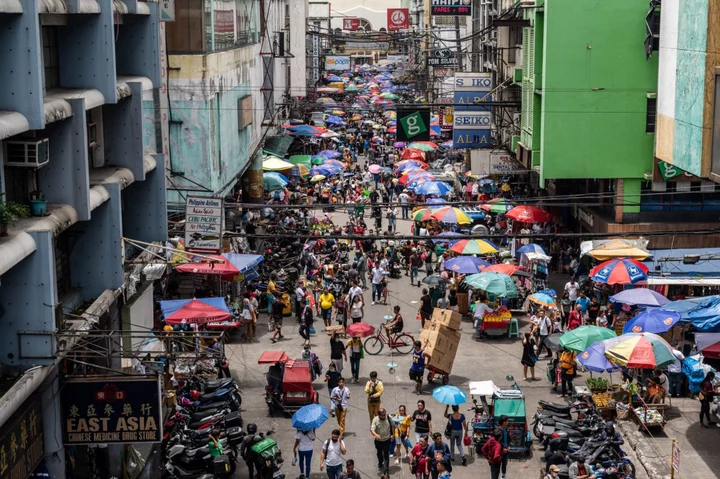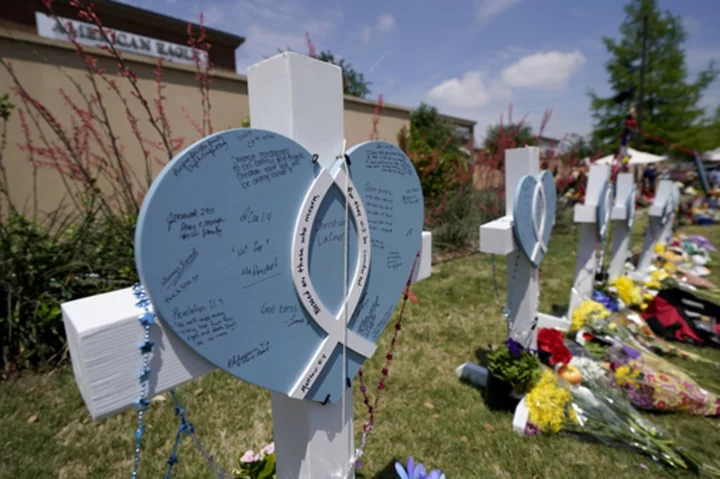The Philippine economy expanded much slower than expected in the second quarter, reeling from the impact of above-target inflation, borrowing costs at a 16-year high and government underspending.
Gross domestic product in the three months through June rose 4.3% from a year earlier, the statistics authority said on Thursday. That’s below all 24 estimates in a Bloomberg survey with a median forecast for 6% and compares with 6.4% growth in the first quarter.
Barring the pandemic years of 2020 and 2021, the April-June annual expansion was the slowest since 2011. The economy fell 0.9% quarter-on-quarter, against a median estimate for 0.6% gain.
A major drag on output was the 7.1% year-on-year decline in government expenditure which Philippine economic managers blamed on procurement bottlenecks and high base effects driven by last year’s election-related spending. Lower interest rates may benefit the Southeast Asian economy, they added.
“The improving outlook for inflation bodes well for the easing of interest rates and should pave the way for the expansion of activities of businesses, households, and the rest of the private sector,” according to a joint statement of the economic managers including National Economic and Development Authority Secretary Arsenio Balisacan. The peso dropped to a nearly nine-month low after the data. Stocks fell more than 1%.
The disappointing performance underscores the challenges confronting one of Asia’s fastest-growing economies as inflation hovers above the central bank’s 2%-4% target while interest rates remain among the highest in Southeast Asia.
First-half GDP rose 5.3% against the full-year target of 6%-7% and officials said it needs to grow by at least 6.6% in the second half to meet the 2023 goal. “Notwithstanding the challenges, we believe this is still attainable,” they said in the statement.
Government spending will accelerate “to allow us to recover our growth momentum,” the officials said. Growth in household consumption eased from 6.4% in the first quarter.
Philippine central bank Governor Eli Remolona, who will deliver his first policy decision as the head of the monetary board next week, has cautioned against raising rates too much.
His predecessors raised the policy rate by 425 basis points since May last year to 6.25% to tamp down 14-year high inflation. Price gains have cooled for a sixth straight month in July.
“The GDP data cements our view that the BSP will refrain from hiking again and hold rates through early next year,” said Domini Velasquez, chief economist at China Banking in Manila. “The BSP may have to consider a reserve requirement ratio cut to provide much needed support. The government will also need to address bottlenecks to hasten spending.”
The peso fell as much as 0.4% to 56.45 per dollar, the lowest since December. The weak growth is adding pressure to the currency, already among the worst performers in Asia this quarter, with a loss of about 2%.
--With assistance from Cecilia Yap, Manolo Serapio Jr., Karl Lester M. Yap, Clarissa Batino and Tomoko Sato.
(Adds comments from economic managers throughout.)









